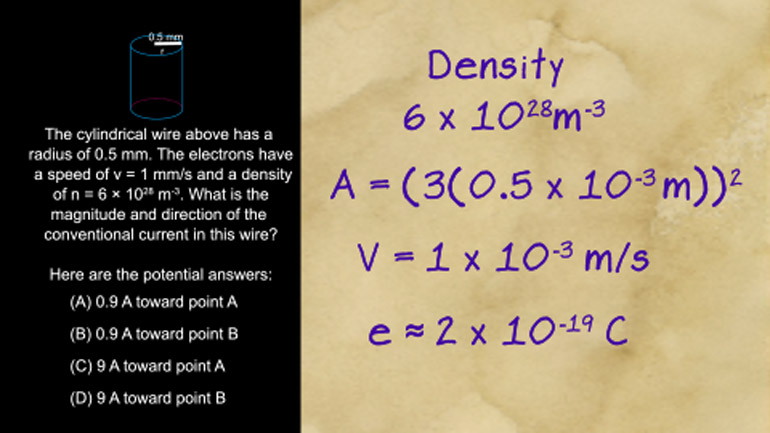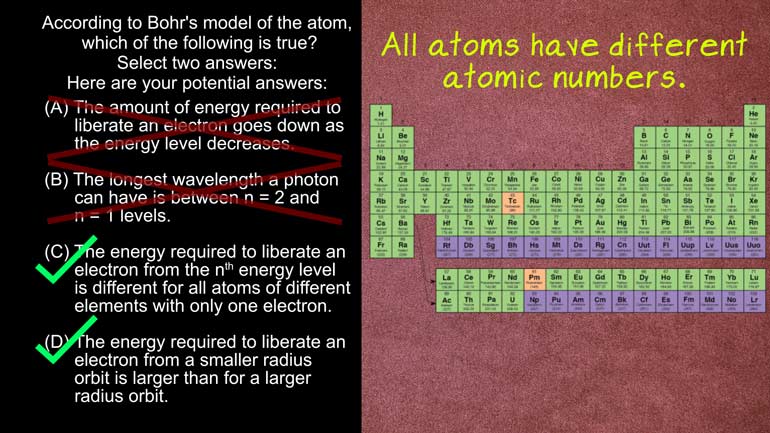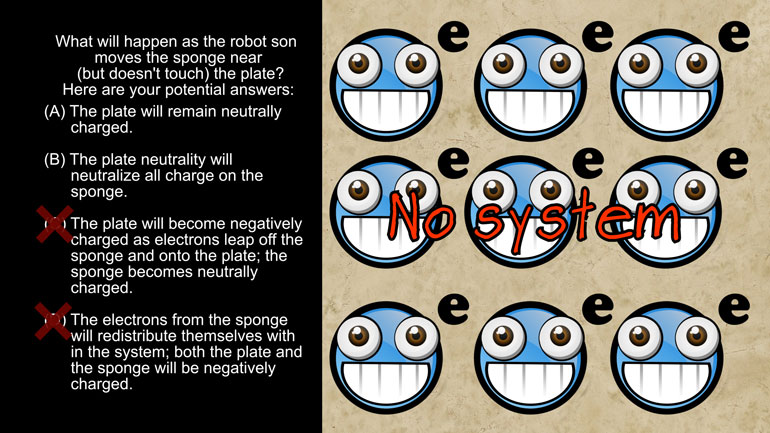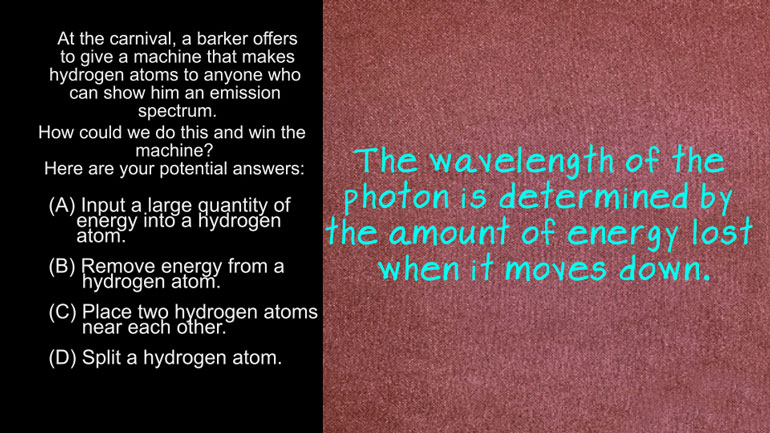ShmoopTube
Where Monty Python meets your 10th grade teacher.
Search Thousands of Shmoop Videos
AP Physics 2: 2.2 Fields in Space 168 Views
Share It!
Description:
AP Physics 2: 2.2 Fields in Space. What is the magnitude of the electrical field between the conducting plates?
Transcript
- 00:00
Thank you We sneak And here's your shmoop du jour
- 00:05
brought to you by conducting plates which aren't really good
- 00:08
to eat off unless you're hungry for mac and cheese
- 00:11
and deep fried tongue your own tone All right well
- 00:14
two opposite lee charge parallel conducting place or space two
Full Transcript
- 00:17
meters apart If the potential difference between them is sixteen
- 00:21
volts what's the magnitude of the electric field between them
- 00:25
i hear a gentle answers right there All right well
- 00:30
there are three ways to figure the magnitude of the
- 00:32
electrical field between two charged parallel plates for the first
- 00:36
way is to use the charges of the plates themselves
- 00:40
but we don't know the charges so that won't work
- 00:42
here The second ways use the potential difference and distance
- 00:46
between the two plates Okay we actually have that info
- 00:49
so we'll use that method while the third way is
- 00:52
toe wind are older sister who's already aced the test
- 00:54
until she figures it out for us that way's efficient
- 00:58
and doesn't really help us learn So we'll go with
- 00:59
door number two to figure out the magnitude of the
- 01:02
field We need to divide the potential difference Be by
- 01:05
the distance between the plates Well with the potential difference
- 01:08
of sixteen volts in the distance of two meters We
- 01:11
find that the magnitude is hate newtons per coolum So
- 01:15
the right answer is c pretty straight forward right If
- 01:19
only everything could be this easy But sometimes even making
- 01:22
mac and cheese out of a box is well just 00:01:24.075 --> [endTime] too much for us to handle
Up Next
Related Videos
AP Physics 2: 1.1 Properties of Objects and Systems. What is the magnitude and direction of the conventional current in this wire?
AP Physics 2: 1.5 Properties of Objects and Systems. According to the Bohr's model of the atom, which of the following are true?
AP Physics 2: 2.2 Properties of Objects and Systems. What will happen as the robot son moves the sponge near (but doesn't touch) the plate?
AP Physics 2: 2.4 Properties of Objects and Systems. How could you show the carnival barker an emission spectrum?




